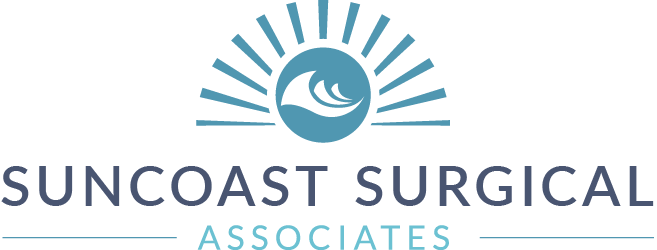How Can I Prepare Myself For Surgery?
If you're preparing for surgery, you're not alone in feeling anxious or overwhelmed. At Suncoast Surgical Associates, we understand that surgery—whether standard or robotic—comes with its own emotional and physical challenges. Fortunately, many proven strategies can help you approach your surgery with confidence and recover faster.
Here’s what science tells us about how to get ready for surgery, reduce stress, and bounce back quickly.
How Can I Reduce My Anxiety Before Surgery?
Preoperative anxiety affects up to 80% of patients and can negatively impact surgical outcomes. However, understanding this stress response—and how to manage it—can help.
Effective Strategies to Reduce Anxiety:
Structured education programs significantly reduce anxiety and improve postoperative outcomes. Patients who understand what to expect tend to feel more in control and less fearful (Elkalashy & Masry, 2018).
Meditation, mindfulness, and relaxation techniques have been shown to help manage the physiological effects of anxiety (Levett et al., 2016).
Staying busy and avoiding obsessive focus on the upcoming surgery can help prevent mental spiraling.
How Can I Overcome My Fear of Surgery?
Fear often stems from lack of familiarity. Understanding the process and trusting your surgical team can go a long way. If you’ve had negative experiences in the past, it may help to:
Talk to your surgeon and anesthesiologist about your concerns.
Ask if you can tour the surgical center beforehand.
Read through a step-by-step guide to what your day will look like.
Educational interventions that include both verbal and written material have been shown to improve patients' sense of control and reduce postoperative complications (Bhonde, 2024).
What Should I Do to Prepare My Body for Surgery?
Science calls this “prehabilitation”—preparing your body and mind for the stress of surgery.
Key Components of Preoperative Preparation:
Hydration: Staying well-hydrated improves recovery and reduces postoperative pain (Hayhurst & Durieux, 2014).
Nutrition: Nutritional optimization (including glucose loading the day before) reduces the stress response to surgery and shortens recovery time (Archana, 2022).
Physical activity: Even light preoperative exercise helps maintain muscle strength and improves outcomes (Iqbal et al., 2019).
Glucose loading: Drinking a glucose solution the night before and morning of surgery has been shown to reduce anxiety and inflammation (Archana, 2022).
What Can I Do to Make Recovery Easier?
Set yourself up for success with these practical tips:
Prep meals or arrange for meal delivery.
Reorganize furniture to make movement easier.
Enlist a friend or family member to assist you for a few days.
Stay mobile post-op: Early movement helps prevent complications and speeds recovery (Bhonde, 2024).
Your Partner in Surgical Care
At Suncoast Surgical Associates, we specialize in comprehensive surgical care—from expert consultations to advanced procedures and postoperative follow-up. Whether you’re facing gallbladder removal, hernia repair, or a more complex surgery, we’re here to support you every step of the way.
Don’t hesitate to reach out to your provider with questions or concerns. Informed, prepared patients recover faster—and we want that for you.
Works Cited
Iqbal et al., 2019. Preoperative patient preparation in enhanced recovery pathways.
Archana, 2022. Evaluation of the efficacy of preoperative oral glucose loading.
Elkalashy & Masry, 2018. Preoperative educational intervention and outcomes.
Bhonde, 2024. Prehabilitation: A Smoother Pathway to Surgery.
Hayhurst & Durieux, 2014. Enteral hydration prior to surgery.
